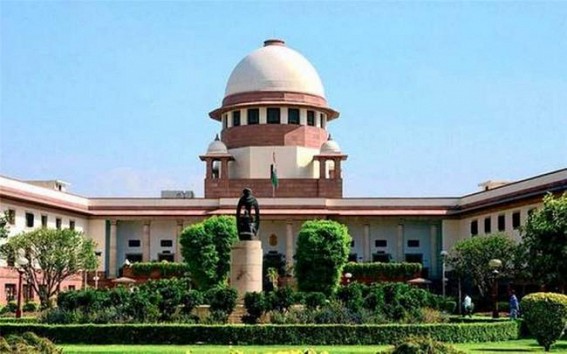TIWN

New Delhi, May 5 (TIWN) The Centre cited the Handwara encounter, before the Supreme Court on Monday, while opposing a plea seeking restoration of 4G internet services in Jammu and Kashmir.
"National security is paramount", it insisted. During the over 2-hour hearing, held through video conferencing, Attorney General K.K. Venugopal informed the court that the government''s policy decision, on limiting the internet speed to 2G in the region, should not be questioned as the restrictions were necessary to protect the people of the region. Arguing that terrorists are being pushed into the country, he said: "Yesterday, there was some tragic incident", citing the recent Handwara encounter, where a colonel and a major were among five security personnel killed in action. The submission from the top law officer came during the hearing of PIL seeking restoration of 4G services in the region. Venugopal insisted "national security is paramount, those tasked with protecting national security must the sole judges...pleas have to be examined against larger public interest of national security". A bench headed by Justice N.V. Ramana and comprising Justices R. Subhash Reddy and B.R. Gavai queried the J&K counsel, for how long will these restrictions last. Solicitor General Tushar Mehta, representing the J&K administration, said this will be decided by the review committee. Venugopal reiterated the orders have been passed specifically stating that restrictions on internet speed is required for national security. "These men (terrorists) could easily take videos of the troop movements... the enemy could know the troop movement if they had 4G."
The petitioners had argued that 4G internet services are essential for doctors, as it would help them access new information on Covid-19, which would help in treating coronavirus patients. The Centre contested this argument stating that initially it began with a complete lockdown, and then movement was opened. Later landlines were made operational and then 2G Internet. "The decisions are made according to officials at the ground level. These orders are not mechanical," said Mehta.
Reserving the verdict on the plea, the top court noted it has to deal with the legal question of ensuring balance in view of health and security concerns raised by the petitioners and the governments. The Centre told the top court that matters connected with political stability, social stability and territorial integrity, all form part of national security.
The top court queried Mehta as how the administration was taking care of the Covid-19 situation with reference to these restrictions. He replied that health services are working, and there is no information that someone has died of Covid-19 in the absence of the internet. Mobile Internet with 2G service was restored in Jammu and Kashmir in January -- six months after it was removed as part of restrictions when the Centre abrogated Article 370 and bifurcated the erstwhile state into two Union Territories.
The petitioner urged the top court to issue directions to upgrade the internet speed in the region, as 2G service was too slow and as a result many activities were held up during lockdown. The petitioners cited high speed internet underpins telemedicine, which is being widely practiced during the lockdown."Right to livelihood, access to telemedicine, access to online classes... even online transactions are affected...," said petitioner''s counsel citing low speed internet.
- India feels the sting as Trump slaps $100,000 fee on H-1B visas
- Bihar Women’s Commission issues notice to Rahul Gandhi, Tejashwi Yadav over remarks on PM Modi’s mother
- ED raids 13 locations linked to AAP leader Saurabh Bharadwaj in hospital construction scam case
- CM Rekha Gupta, Union Minister Jitendra Singh receive astronaut Shubhanshu Shukla at Delhi airport
- IndiGo aircraft's tail touches runway at Mumbai Airport



